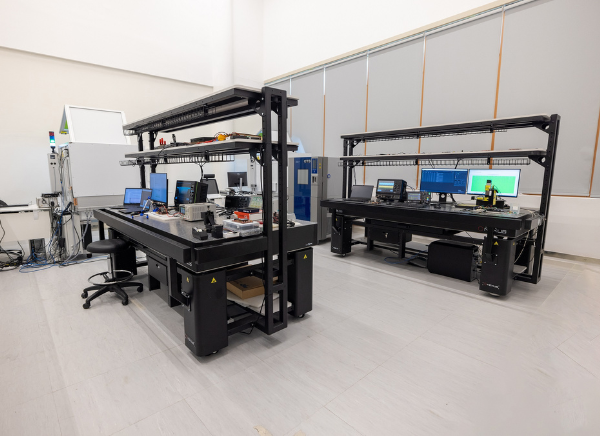
Abu Dhabi’s Technology Innovation Institute (TII), a renowned global scientific research institute and the applied research division of the Advanced Technology Research Council (ATRC), has unveiled cutting-edge hardware security research laboratories. These state-of-the-art labs, which specialize in testing hardware cryptographic implementations and assessing the security of embedded systems, mark a groundbreaking achievement for the Middle East and North Africa (MENA) region.
Equipped with advanced capabilities including side-channel analysis, fault-injection-based attacks, hardware penetration testing, and fuzzing, the labs offer a comprehensive range of services. Furthermore, the labs possess reverse engineering capabilities that leverage machine learning algorithms to detect and combat sophisticated malware and ransomware threats. The labs boast a cross-domain team of experts, consisting of theoretical and applied cryptographers, security specialists, reverse engineering professionals, electronics engineers, and researchers skilled in side-channel analysis and fault-based injection attacks.
Operating as part of TII’s Cryptography Research Center (CRC), the hardware laboratories aim to become a centralized solution for design security verification and evaluation across various sectors. They cater to a wide range of use cases, spanning national safety, automotive technologies, lightweight IoT applications (such as smart homes and smart meters), as well as industrial infrastructure (smart grids), healthcare (medical device security), and post-quantum cryptographic resistant devices and implementations. Key projects that can benefit from the labs’ expertise include specialized embedded systems, smartcards, PCBs, ASIC chips, FPGA boards, and COTS microcontrollers, among other devices.
The labs feature cutting-edge equipment such as high-end measurement instruments, oscilloscopes, signal generators, logic analyzers, lasers, dedicated side-channel and fault-injection test benches, current and EM probes, cables, amplifiers, a climate chamber, and state-of-the-art experiment tables. Additionally, the labs operate dedicated storage servers in a highly secure, air-gapped environment to ensure the reliability, confidentiality, and integrity of all data. One of the primary objectives of the labs is to strengthen the UAE’s technological sovereignty in the field of embedded cryptography, providing end-to-end support throughout the entire lifecycle, from design and implementation to verification and security evaluation. The labs also offer documentation and training support.
Dr. Ray O. Johnson, CEO of TII and ASPIRE, emphasized the significance of security as a fundamental technology in the digital era. He expressed his delight in contributing to the region’s progress in this field through TII’s advanced hardware security lab. Dr. Johnson highlighted the challenges posed by cybersecurity in a digital-first world, with the rapid emergence of quantum computing and the constant threat of malicious actors attempting to breach complex security protocols. He reiterated TII’s commitment to accelerating breakthroughs that ensure ahead-of-the-curve security measures and safeguard digital environments.
Dr. Najwa Aaraj, Chief Researcher at CRC, emphasized the expertise and innovative methodologies brought together in the hardware security lab. She highlighted their dedication to enhancing the design and implementation of customer products, specifically in the areas of hardware cryptographic implementations and embedded systems. Dr. Aaraj underscored the lab’s commitment to maintaining the confidentiality and integrity of data while building upon emerging academic and industry research to deliver top-notch service quality and offerings.
The establishment of the new hardware security lab aligns with TII’s broader vision to proactively address ongoing threats and potential challenges faced by digital societies today and in the future.
